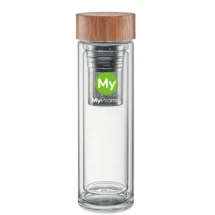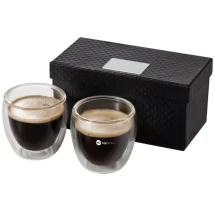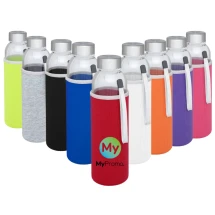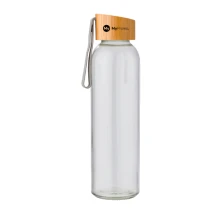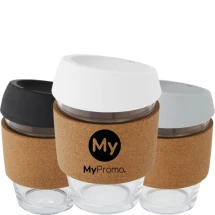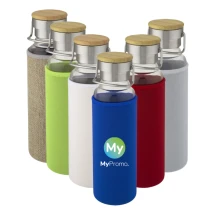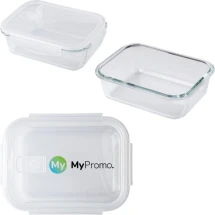Glass
What is glass?
Glass is a non-crystalline, often transparent material created by rapidly cooling molten silica. It's been used for thousands of years in various forms, from ancient Egyptian jewellery to Roman glassware, due to its versatility and aesthetic appeal. In the manufacturing world, glass is crucial for products ranging from windows and bottles to electronics. It's also popular for promotional gifts like customised glassware and plaques, offering a blend of sophistication and functionality.
A brief historical background
Glass production dates back to at least 3500 BCE, when the Mesopotamians and Egyptians began making glass beads and small vessels. Techniques evolved over time, with significant advancements in Roman times. By the Middle Ages, Venetians became renowned for their high-quality glass, and innovations during the Industrial Revolution made glass production more efficient and widespread.
Glass production process
To produce glass, raw materials like silica (sand), soda ash, and limestone are mixed and heated to extreme temperatures, forming a molten mixture. This mixture is shaped into sheets or objects using various techniques such as blowing, pressing, or rolling. Once shaped, the glass cools rapidly, forming a rigid, transparent structure. Modern processes include treating the surface to improve its properties, such as tempering for safety or coating for improved insulation.
Properties and characteristics of glass
Glass has unique properties, making it a popular manufacturing material:
- Transparency: Allows light to pass through, making it ideal for windows and displays.
- Hardness: Resists scratching and provides durability.
- Inertness: Chemically non-reactive, suitable for storing food and chemicals.
- Heat Resistance: Withstands high temperatures without melting or deforming.
- Recyclability: Can be recycled repeatedly without losing quality.
Applications and examples
Glass is found in nearly every industry. It's used in architecture (windows, doors, skylights), automotive (windscreens, mirrors), consumer electronics (screens, lenses), and kitchen giveaways (bottles, glasses). For promotional gifts, personalised glassware like engraved tumblers and custom awards are excellent options, as are glass ornaments and desk accessories.
Advantages of glass in manufacturing
Glass offers several advantages over other materials:
- Aesthetic appeal and clarity.
- Hygienic properties due to its non-porous nature.
- Customisability for decorative or branded designs.
- Ability to be shaped into various forms while maintaining structural integrity.
Challenges and limitations of glass
While glass is valuable, it has some drawbacks:
- Fragility: Prone to breaking if mishandled or dropped.
- Weight: Heavier than alternatives like plastic.
- Cost: More expensive to produce in some cases due to energy-intensive processes.
Comparison table: Types of glass and their properties
| Type of Glass | Strength | Heat Resistance | Optical Clarity | Common Uses |
|---|---|---|---|---|
| Soda-Lime | Moderate | Moderate (up to 200°C) | High | Windows, bottles, jars |
| Borosilicate | High | High (up to 400°C) | High | Lab equipment, bakeware |
| Tempered | Very High | Moderate (up to 200°C) | High | Safety windows, vehicle glass |
| Laminated | High | Moderate | High | Windscreens, bulletproof glass |
| Optical | Moderate | Low | Very High | Camera lenses, microscopes |
What makes glass transparent?
Glass is transparent because of its molecular structure, allowing light to pass through without scattering.
Is glass recyclable?
Yes, glass is fully recyclable and can be melted down and reused indefinitely without losing its quality.
How is tempered glass different from regular glass?
Tempered glass undergoes a special heat treatment that makes it stronger and safer. When it breaks, it shatters into small, less dangerous pieces.
Can glass be used in high-temperature environments?
Yes, certain types like borosilicate glass can withstand high temperatures, making them suitable for lab equipment and kitchenware.
Why does glass sometimes appear greenish?
The greenish hue often seen in clear glass is due to impurities like iron oxide present in the raw materials.
